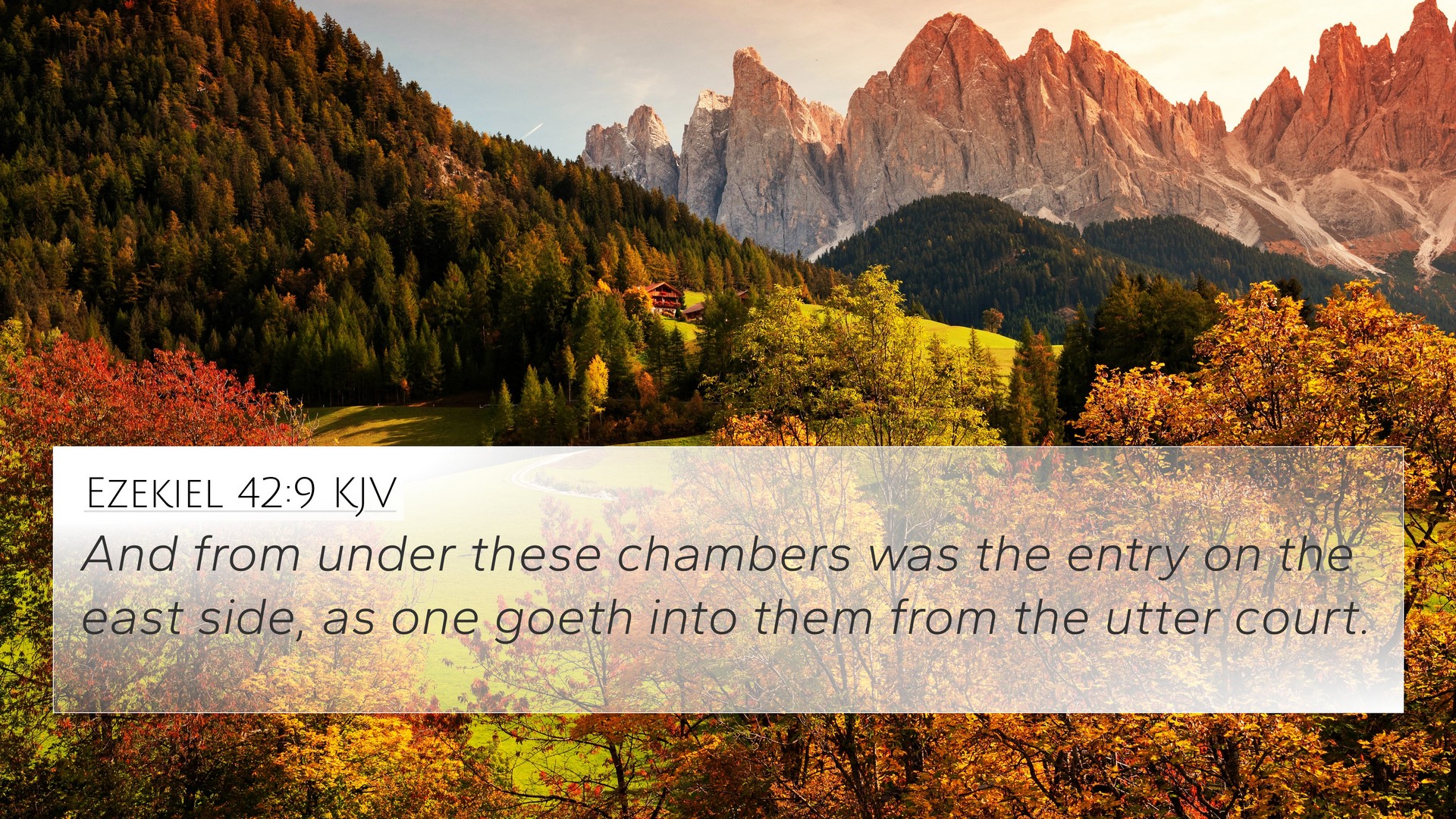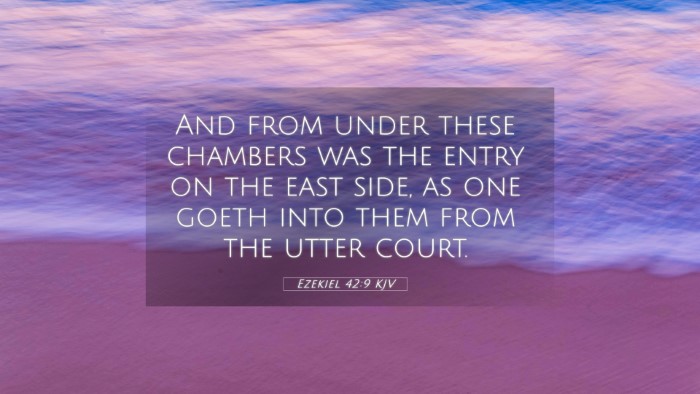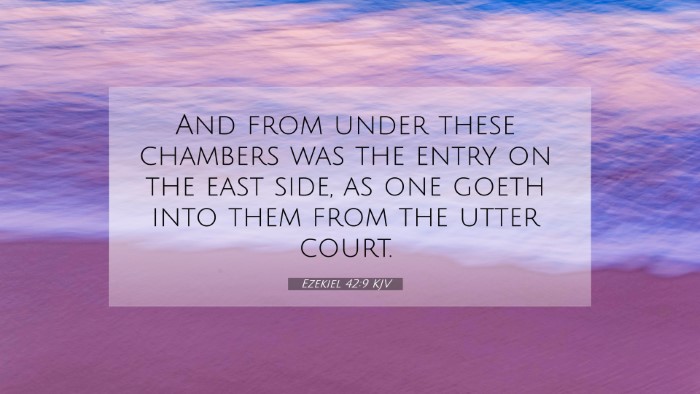Ezekiel 42:9 - Understanding the Verse
Bible Verse: Ezekiel 42:9
This verse occurs within the context of a detailed description of the temple and its measurements during Ezekiel's prophetic vision. It contributes to an understanding of the divine order and the sanctity of worship in Israel.
Combined Insights from Commentaries
According to Matthew Henry, this passage highlights the structured approach God has concerning His worship and dwelling among His people. The vision serves not only as a guide for the literal temple but also symbolizes the presence of God within the covenant community. Albert Barnes emphasizes the provision of a place designated for the priests while also reflecting on the holiness required in worship. Adam Clarke notes the implications of such a space, suggesting it represents a separation from worldly matters, thereby enhancing the sacred nature of worship.
Key Themes
- Divine Order: The precise descriptions underscore God's desire for order and reverence in worship.
- Holiness of Worship: It is crucial for worshippers to maintain a state of holiness when approaching God.
- God's Presence: The temple is a representation of God's dwelling among His people.
Bible Verse Cross-References
To deepen our understanding of Ezekiel 42:9, we can explore several related scriptures:
- Exodus 25:8: "And let them make me a sanctuary; that I may dwell among them." This verse establishes the principle of God’s desire to dwell with His people.
- 1 Kings 8:27: "But will God indeed dwell on the earth? Behold, the heaven and heaven of heavens cannot contain thee; how much less this house that I build?" This reflects on the grandeur and the limitlessness of God compared to the temple.
- Isaiah 66:1: "Thus saith the LORD, The heaven is my throne, and the earth is my footstool: where is the house that ye build unto me? and where is the place of my rest?" This reiterates the theme of God’s supreme position over all creation.
- Matthew 21:13: "And said unto them, It is written, My house shall be called the house of prayer; but ye have made it a den of thieves." Here, Jesus critiques the corruption within the temple, emphasizing the necessity of purity in God's house.
- Revelation 21:3: "And I heard a great voice out of heaven saying, Behold, the tabernacle of God is with men, and he will dwell with them, and they shall be his people, and God himself shall be with them, and be their God." This points towards the ultimate fulfillment of God’s presence among humanity.
- Psalms 84:1: "How amiable are thy tabernacles, O LORD of hosts!" This reflects a deep love and reverence for the dwelling place of God.
- Hebrews 9:1: "Then verily the first covenant had also ordinances of divine service, and a worldly sanctuary." This connects the Old Testament temple worship with New Testament themes.
Connecting Bible Verses: Thematic Analysis
The connections between Bible verses can lead to a deeper understanding of the themes presented in Ezekiel 42:9. These include:
- Sanctuary and Worship: Cross-referencing the significance of the temple across both Old and New testaments enhances our appreciation of sacred spaces.
- God's Desire to Dwell: By examining verses that express God’s longing to be among His people, we recognize the relational aspect of worship.
- Holiness Required in Worship: Identifying connections that stress the importance of holiness when entering God’s presence.
Tools for Bible Cross-Referencing
For those looking to explore these connections further, there are various tools for Bible cross-referencing:
- Bible Concordance: Useful for finding specific keywords and phrases throughout the text.
- Bible Cross-reference Guide: A structured resource that maps relationships between verses.
- Comprehensive Bible Cross-reference Materials: Extensive resources available for in-depth study.
Conclusion
The examination of Ezekiel 42:9 through the lens of cross-references encourages a richer, more nuanced understanding of God's expectations for worship and the dedication required from His people. By utilizing the cross-referencing Bible study methods, one not only unpacks this verse but also uncovers the layered themes prevalent throughout Scripture.




